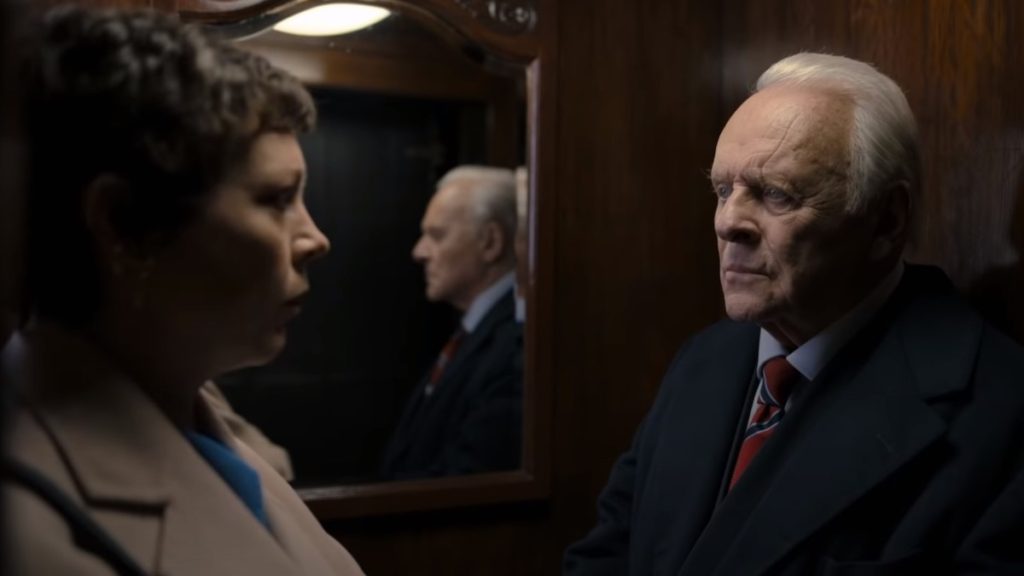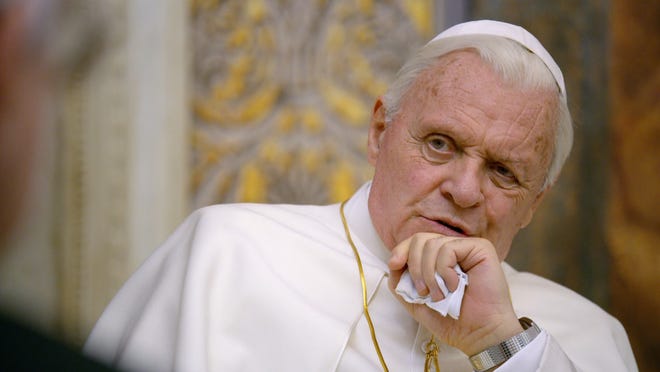
Anthony Hopkins and Olivia Colman deliver heartbreaking performances in The Father, an unsettling exploration of memory loss.
As we meet the elderly Anthony (Hopkins), he is insisting on independence that he can no longer sustain. That makes it hard on his daughter Anne (Colman), who is trying to keep him safe and healthy, despite his resistance. But Anthony is losing his memory and becoming ever more suspicious. Soon, all the characters are experiencing disorentation, even fantasies and hallucinations.
The Father is the directing debut for Florian Zeller, who wrote the original play. Along with the superb acting, the key to The Father is Zeller’s ever shifting of reality as understood by the characters and by the audience. As we think we understand what is going on and then have it unraveled, we, like Anthony, lose confidence in our orientation.
Anthony Hopkins has an Oscar and a long list of great performances (The Silence of the Lambs, The Remains of the Day, Nixon, The Human Stain, The Two Popes), but none is better than this one. His Anthony is a man whose characteristic wilfulness is finally self-defeating; he is a man ever confident of his opinions, but the factual basis for those opinions is eroding. He is a man who firmly believes he is always right, facing a new reality in which he demonstrably is not.
Colman is also superb as the able and devoted daughter who is hurt by her father’s perception that she is betraying him. The rest of cast – Rufus Sewell, Imogen Poots, Mark Gattis and Olivia Williams – is impeccable.
The Father, which I saw while covering the virtual Mill Valley Film Festival in October, will be widely available to stream on Friday. It’s on my list of Best Movies of 2020. It has earned six Oscar nominations, including Best Picture and acting recognition for Hopkins and Colman.

